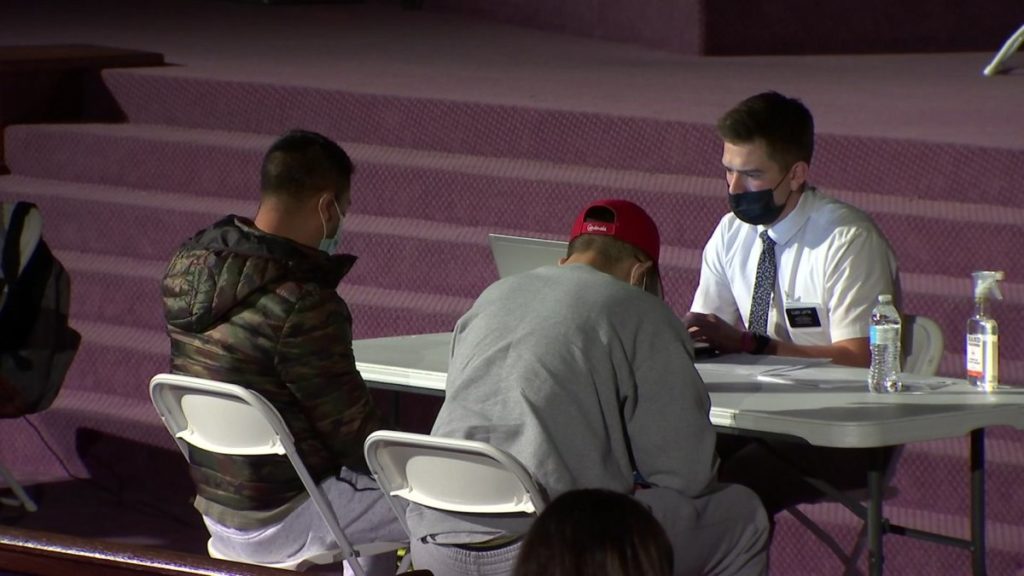Starting Monday, March 15, health providers can vaccinate people with some underlying conditions — including severe obesity, down syndrome and type 1 diabetes — but some say the list isn’t long enough.
The list explicitly excludes hypertension, and while Type 2 diabetes is on the list
Type 1 diabetes is not. Neither are autoimmune diseases unless you received an organ transplant, meaning people with rheumatoid arthritis, lupus and MS (just to name a few) who don’t otherwise qualify won’t be able to get a vaccine either.
“The list is probably too short,” said Dr. Robert Schooley, a professor of medicine in the infectious disease division at UC San Diego. “But it’s a complicated issue.”
Schooley said the range of risk can vary greatly even within the same disease.
“If we make this too complicated we could find ourselves slowing down this process instead of speeding it up,” Schooley said.
This month the American Diabetes Association sent a letter to the CDC Immunization Advisory Committee urging the agency to include Type 1 diabetes in its list of high-risk diseases, saying in part, “It would be problematic for any state to differentiate between Type 1 Diabetes and Type 2 Diabetes in their prioritization of access for vaccines.”
People with Type 1 diabetes are 3.9 times more likely to be hospitalized with COVID-19 and are three times more likely to die from the virus than people with Type 2. according to the letter.
The virus is especially dangerous for diabetics in general, who are 6 times more likely to be hospitalized for COVID, and 10% of those that are die within a week, representing 40% of all COVID-19 deaths in the U.S.
“Almost definitely the list is too short,” Sharp cardiologist Dr. Robert Gillespie said. “But the list does include a lot of patients that are at a high risk.”
Dr. Gillespie serves on the county’s equity task force. Because the county does not require a medical record to prove you suffer from one of these conditions, he recommends if you really feel at risk – you should show up and explain you are immunocompromised.
“Getting the vaccine is based on the attestation,” Gillespie said. “It’s based on the honor system.”
Schooley believes there is a good chance the county will expand the list after a few weeks when it has a better sense of the demand is for vaccines from people with underlying conditions.
